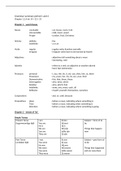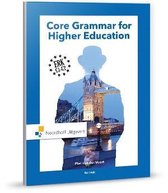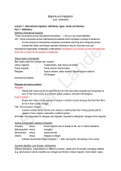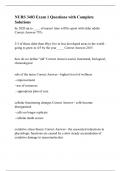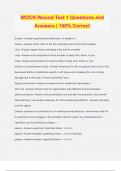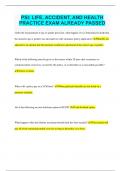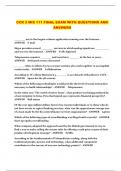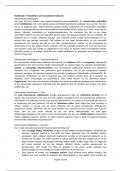Samenvatting
Summary Grammar 1 (Core Grammar for Higher Education)
- Instelling
- Hogeschool Arnhem En Nijmegen (HAN)
Samenvatting Chapter 1, 2, 4, 6 t/m 14, 22 and 23 van het boek 'Core Grammar for Higher Education'. Deze samenvatting is gemaakt voor 1e jaars studenten ILS-EN-VT voor het vak 'Grammar 1'.
[Meer zien]
